Grants
The grants program is a centerpiece of our work, providing initial funding for scientists to develop alternatives to the use of animals in biomedical research and product safety testing. To date, the center has funded over 300 grants (including renewals) for a total of more than $6 million.
Our current grant offerings include the Alan and Helene Goldberg In Vitro Toxicology Grant, the CAAT Humane Education Grant, and the CAAT Reduction Grant.
Although relatively small individually, these grants offer critical seed money that allows researchers to demonstrate the value of a particular area of study so they can gain support from the NIH and other sources.
We have a stringent, peer-reviewed process for selecting the recipients of these grants. This process consists of sending each application to at least two to three experts in the field from academic, industrial, and government institutions. These reviewers evaluate the applications with regard to scientific merit, budget appropriateness, suitability to CAAT’s mission, and expertise of the investigators. They also assign a priority score based on the scoring system used by the NIH.
We continue to monitor the long-term progress of the Research Grant Program by requiring our grant recipients to submit copies of publications resulting from the work supported by CAAT grant funds. We maintain a list of publications and an archive of journal reprints.
For any questions relating to any of our grant, please feel free to reach us at caat@jhu.edu.
Awards
Our awards highlight and honor significant strides made towards the development, validation, and adoption of methods that replace, reduce, and refine the use of animals in research, testing, and education. Our awards span various categories, each designed to acknowledge distinct areas of contributions in the domain of humane science.
- Charles River Laboratories Excellence in Refinement Award: We salute the visionaries who have catalyzed progress in the promotion, development, and practical implementation of refinement alternatives in animal testing.
- Next Generation Humane Science Award: We believe in inspiring the next generation. This award spotlights the bright, promising work of young scientists committed to replacing animals in experimentation.
- Reduction and Refinement Award: A special recognition for research projects that either enhance the housing and experimental procedures of lab animals or contribute to the cause of reducing animal use.
- CAAT Recognition Award: Each World Congress, we honor a champion—an individual or organization that has made a remarkable contribution to the field of the 3Rs, alternative methods, or in vitro science.
Through these awards, we aim to encourage more individuals and organizations to contribute to a future where the necessity for animal testing is drastically reduced, if not completely eliminated.
We encourage your participation in these awards. Stay tuned for our call for nominations for 2024.
For any queries and nominations, please feel free to reach us at caat@jhu.edu.
